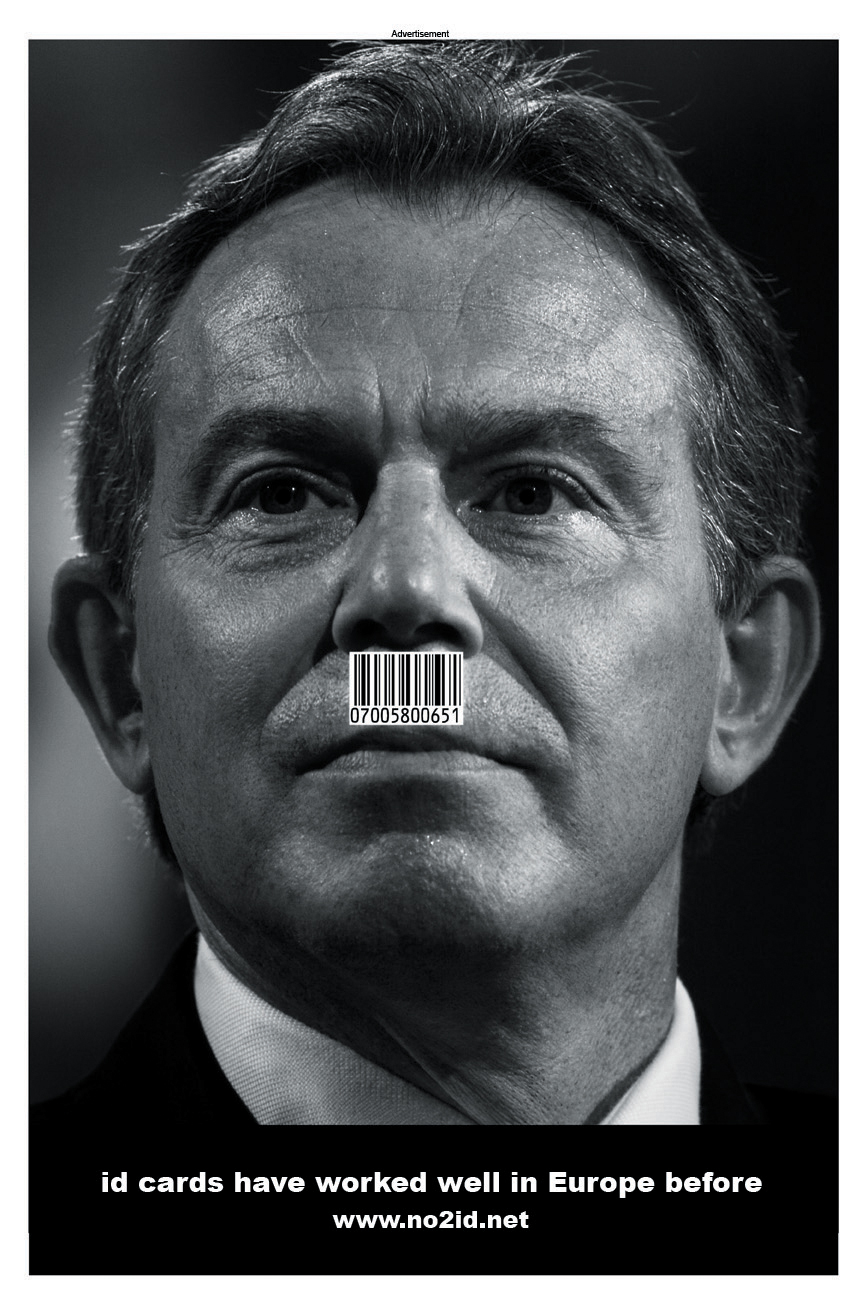As a propaganda geek, I’m concerned (some might say paranoid) about surveillance and its growing use as a means of social control, or as a tool to gather information used to justify and enact other social control mechanisms. Surveillance is the flipside of propaganda, and propaganda systems of social control can’t function properly without the feedback which surveillance provides; effectively, without surveillance, the controller is blind. This encompasses both the hard kind (cameras, enforced ID checking, enhanced search and detention rights) and the soft kind (data mining and data matching, consumer profiling, and so on). For this reason I don’t have a Facebook account, or a Fly Buys card, and I don’t use my gmail account for anything much other than website registrations as a spamtrap; and everything into or out of my webserver in Texas is encrypted. Although since they decided that registration wasn’t mandatory I do have a Snapper card (I wrote about potential surveillance problems with Snapper a bit over a year ago). I feed it with cash. Note: I’m not paranoid about hiding my identity; I’m paranoid about what other information might be matched to it and how an interested party might use that information to target me for use as part of their agenda.
Anyway. Surveillance is becoming increasingly ubiquitous, as people trade off privacy against security, but the problem is that the trade-off is implicitly framed as a matter of who you choose to trust – the ‘crims’ (those with something to hide and therefore something to fear), or those who maintain that security (and who necessarily have greater powers to put that information to use).
I’m working on a project at present which involves reviewing a great deal of media coverage about antisocial behaviour in Western Australia, and surveillance appears widely regarded as the key to cracking the (apparently endemic) problems they have over there. These include:
- Cameras in streets, cameras in parking lots, cameras on nightclub doors; cameras above dance floors, cameras everywhere, in many cases mandated by liquor licensing regulators
- Rights for police and other authorities to access footage in real time
- Fingerprint scanners on club doors
- The requirement to ‘sign in’ to clubs by giving over your ID as a condition of entry
- Systems by which one club can (must? not sure about this) immediately share its patron database with other clubs in the area, so if a patron is ejected from one club they are barred from them all
- Powers for police and licensing regulators to ban ‘problem patrons’ from every single licensed premise in the state for a period of up to five years, without them having been found guilty of any offence
 Frankly, it’d be enough to put me off going to the pub. The culture there has become so accepting of surveillance that this is generally unquestioned by those in authority, and the electorate demands nothing more of its representatives. Perhaps even worse is the UK, whose national ID card scheme was the subject of an excellent but unsuccessful counter-propaganda campaign.
Frankly, it’d be enough to put me off going to the pub. The culture there has become so accepting of surveillance that this is generally unquestioned by those in authority, and the electorate demands nothing more of its representatives. Perhaps even worse is the UK, whose national ID card scheme was the subject of an excellent but unsuccessful counter-propaganda campaign.
While we have some surveillance cameras (most notably in Queen Street and central Christchurch) and a reliance on RFIDs (in passports, for instance), and we have a police culture of aggressive surveillance and with strong authoritarian tendencies, things aren’t so bad in New Zealand. So it is with some dismay that I read yesterday’s op-ed by Chapman Tripp solicitors Simon Peart and Richard May on the NZ Herald website which warns of the alarming powers of surveillance and social control which could be exercised by regulatory bodies including the Commerce Commission, the Reserve Bank (!) and MAF under the newly (and quietly)-introduced Search and Surveillance Bill. They really are quite alarming – the right to covertly surveil ordinary citizens in their own homes, the extention of enforcement powers normally the preserve of the police to other regulatory bodies, the right to infiltrate and surveil computer networks and to secure premises against their legitimate owners, and, frighteningly, the nullification of legal privilege in some communications. Read the article. Read the bill if you can spare the time (it’s 196 exhausting and obfuscatory pages).
As I said, this comes down to trust. The problem is that, even though I generally trust governments, I don’t trust their regulatory and social control agencies which are not subject to electoral veto. That’s the problem with this bill – it seeks to remove the matters of surveillance and investigation from the political sphere where it belongs and create a new surveillance culture norm in NZ.
Edit: I have somehow missed the Gordon Campbell’s excellent piece on the same topic. Read that, too.
L
